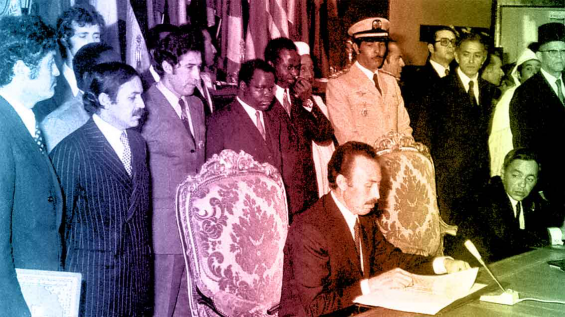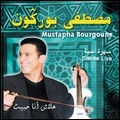On Tuesday, March 30, Algeria signed a memorandum of understanding with a Chinese consortium to «co-finance» the Ghar Djebilet (or Gara Djbilet) mining project, located west of Tindouf. «The cost of this investment has not been fixed to date and should not exceed $ 2 billion according to preliminary estimates», Algerian Minister of Energy Mohamed Arkab told media. «The launch of the operation of the mine planned in three stages, until 2025, will see the first production of iron at in the exploited area», reports the Algerian press agency APS.
A deadline that could be postponed by a few years. The iron deposit suffers from a phosphorus content too high to be exploited. A Russian company is working on dephosphorization of iron ore, as Moscow ambassador to Algiers Igor Beliaev revealed in an interview with local media in October.
Beyond this problem, this project sheds light on a part of contemporary history in the Maghreb. Indeed, the operation of the mine should have been entrusted to a joint Moroccan-Algerian company, in accordance with the Moroccan-Algerian Declaration made in Rabat on June 15, 1972 on borders, published by the Official Journal of the Republic of Algeria in its edition of June 15, 1973. On the other hand, the Kingdom carried out this procedure by royal decree of June 22, 1992.
The forgotten Moroccan-Algerian joint venture
In the document, King Hassan II and President Houari Boumediene declared that «the fraternal relations between Algeria and Morocco cannot erect the border as an obstacle, but on the contrary make it a place of interpenetration of feelings and interests». This commitment was made in the presence of some forty representatives of African countries who came to attend the summit of the Organization of African Unity organized in Rabat.
The two leaders had affirmed that «by the conclusion and the signature of the convention defining the Algerian-Moroccan border and the convention of cooperation of the development of the mine of Gara-Djbilet, we intend to establish permanent peace for centuries to come».
.jpg)
King Hassan II had a particular interest in the exploitation of the Gara Djbilet mine, then-Minister of Foreign Affairs Abdelhadi Boutaleb underlined. «On my return from Tunisia (June 1972), King Hassan II instructed me to follow up the case with my counterpart Abdelaziz Bouteflika. He said to me: 'Treat this question with diligence so that the point concerning the mine of Gara Djbilet arrives at its phase of application'», he said.
But his attempts to organize a meeting with his counterpart Abdelaziz Bouteflika were unsuccessful. The Algerians having never agreed on the terms of the partition, the joint exploitation of the mine never occurred. The question of Western Sahara gave them another argument to shirk their obligations.
Almost five decades after the signing of the agreement on the demarcation of the borders, the Algerian authorities have ignored this cooperation with Morocco for the exploitation of Gara Djbilet. Yet this same 1972 convention was invoked by Algiers to justify the expulsion of Moroccan farmers from the oasis of El Arja (Figuig) a few weeks ago.





 chargement...
chargement...













